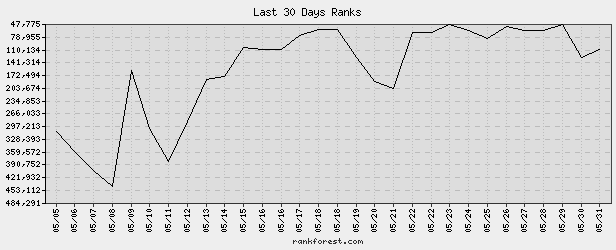This is an interview that Conor did for Brodart's July catalog. Brodart supplies books to school and public libraries. In 1939, Arthur Brody modified some photographic film and used it to cover his textbooks for added protection and created the plastic book jacket cover.
This is a very informative interview so I'm posting it here. There is a even a plug for this blog at the end of the piece. The interview took place by email.
Please describe where you grew up and what your family was like.
I grew up in Chester, a city based on a former Roman camp that still has a complete set of walls forming a rectangle around what was the old medieval center. These days it holds more of an attraction for shoppers, but even as a kid I was aware of centuries of history all around me. We had museums with ancient weapons and in the summer grown-ups dressed as Roman soldiers or medieval town criers could be seen on the streets.
You can’t choose your family, but if I could, I probably would go for something like mine. My mother was a maths teacher and is immensely sensible; my father was a special needs teacher and is immensely irresponsible. Together they made a good team, creating an environment full of books and fun. They let me and my (younger) brother, Gavin, just get on with our games, only stepping in if the fighting became too crazy.
When did you first become interested in being a writer? What other professions, if any, have you had?
Around the age of twelve, after reading several fantasy adventures, by, among others, Andre Norton, Michael Moorcock and Tolkein, I got out a schoolbook and began to write. The amorphous ideas in my head were to do with extraordinary realms of magic and flashing swordfights, but the execution was, naturally at that age, terrible and derivative. In fact, the attempt was so disheartening that I gave up for more than a decade.
My first ever job was in 1982 and was fabulous. A new company, Treasure Trap, came to the Chester Wargames Club, at a time when I was 18, had long hair and listened to heavy metal: exactly the kind of young person they were looking for. They had hired a castle in Cheshire and were looking for volunteers to help run adventures for people who would come in costume and roleplay. They liked me, I loved being there, and so it didn’t take long before I had a room in a grim and freezing corridor of the castle as a member of staff.
After this experience it was hard to settle at anything serious. I worked for a bit as an engineering clerk for Case International, helping make tractors, but I knew that once I had enough money for a computer I’d give it up. Other work included: nature conservancy on the Island of Rhum, Scotland; archeology (Mesolithic); organizing for a revolutionary party and, latterly, being a professor of Medieval History.
What is your educational background like?
My parents value education very much indeed and I broke their hearts by not getting a degree. But I’d discovered a world so very much larger and more interesting than that offered by university and it wasn’t until I was 32 that I decided to take up the offer of an Irish scheme for mature students and study hard. I got in to Trinity College Dublin (my dad’s college) and was struck with delight upon attending the inspiring lectures of a certain medieval professor. As a result I really immersed myself in medieval history and have a PhD on the crusades, which, along with the gold medal I got for my degree, has given my parents something to smile about.
Are there any writers, teachers, or other individuals that have had a major influence on your writing or helped you further in your career?
I’ve never met her, but Ursula Le Guin is a very inspiring writer and, from what I can tell about her through her works and interviews, an equally impressive person. There is no doubt also that my brother Gavin is extremely important with regard to my writings. He is a dramatist with a successful playwriting career in his own right, but more importantly, he is passionate and stimulating about all forms of culture. He is the kind of person who asks questions about human nature that have you thinking for weeks.
Can you briefly describe the process you go through when writing a novel or book? Where do you get your inspiration?
So far the inspiration for my books has come very quickly. Perhaps I’ll be reading an article or be in the middle of a conversation, and I’ll suddenly find myself wondering: ‘what an interesting idea, how would you explore that dramatically, in a novel?’ If it really is a strong idea and not just a passing thought, I’ll start to work on it, carrying around a notebook to jot down thoughts as I mull it over more seriously. The framework of the book will be created in that fashion, but I find a great deal of development takes place during the actual course of writing. When I look at my old notebooks for Epic and Saga I’m amused by the differences, sometimes quite significant, to the final books.
How would you describe your debut novel Epic? Why might people want to read it?
Imagine a world where your job, your wealth, your house and your social status is determined by your success in a fantasy computer game: Epic. It really does matter how powerful your wizard or warrior are, because that will affect everything about your life. The problem is, in this particular world, a small elite has come to control all the most powerful game characters and the system they preside over is becoming more and more unjust. Epic is about a fourteen-year-old boy, Erik, and his friends as they set about challenging Central Allocations.
If you like adventures with pirates, vampires and magic duels, you will enjoy Epic. But I also used the unusual framework of that society to test different philosophies against it. Those readers who seem to have got a real thrill out of the book have also been stimulated by the questions it addresses with regard to violence and political action. Erik, as he becomes more powerful in the game, has some tough choices to make.
You’ve created some very interesting characters. What is the character development process like for you?
I smiled when I came to this question, I’m glad you asked it because it is a conscious issue in my writing. Aristotle once wrote that a dramatist has a basic choice to make, are they going to explore characters or a plot? The problem, and I think he is right, is that in order to advance a plot towards a particular place, there comes a moment when you require a character to behave in slightly inconsistent ways; they are not allowed to be ‘true’ to themselves. Lots of great books prioritize plots; I think I’d put the Harry Potter books in that category.
Up to now, however, I’ve favored character. I usually write towards a scene I have in mind where three or more people are together and interacting according to their nature. In the process of writing the scene, I try to keep them ‘free’ to behave as they might in reality, even if this means strange and unhelpful outcomes with regard to the plot. So, for example, during the writing of Epic, I had to be fair to the bad guys – only one of whom would consciously admit they were bad in their own eyes – and let them win or change their minds about important issues. Strangely, I wasn’t sure myself how the book would end until I got there. Hopefully that keeps the reader as curious to find out as I was.
Are there any elements of your characters based on anyone that you know?
Definitely; we human beings hardly understand ourselves, let alone others, but can you be consistent about the internal dynamics of a person without thinking very concretely about how ‘so and so’ would respond to a certain crisis, argument, romantic moment, etc? All my major characters have elements from people I know; one of my friends now has a nickname ‘Bjorn’ as a result of Epic! But the fictional characters are, of course, a synthesis of various elements and not really paralleled by any real person. The only exceptions to this are the Avatar in Epic and to a lesser extent Ghost and the Dark Queen in Saga. These characters required me to speculate more. What, for example, would it be like if you were born into awareness, as the Avatar was, as a vast software intelligence? I put a lot of thought into this question and for months was trying out different ideas about it on my friends.
What writers/books do you enjoy or have influenced your work?
I’m always reading, as a kid I read through Chester Library’s Science Fiction section. All the literary culture they’ve been exposed to swims through a writer, but, purely on the basis of thinking about which living authors make me rush out (or click Amazon) when I hear they have a new book out, I would list: Ursula Le Guin, Phillip Pullman, China Meiville, Iain M. Banks, Gabriel Garcia Marquez and Roddy Doyle.
Are there any other books or projects that you are currently working on?
Suppose you could swap universes at will, to adjacent ones where you never miss a shot on goal, never fail your exams, never fail with the opposite sex. Wouldn’t life be good? Not necessarily, I decided, because it would probably change you into a rather cocky person. My next major book will be out in 2008 in Ireland and is about a boy who can do this, but not only is he creating problems for his own development, he has also accidentally unleashed a ‘hungry ghost’ into the world, one that feeds on all the shame and unhappiness he ducks away from.
I’ve also got a couple of notebooks on the go, but I don’t like to talk about them yet, in case I raise readers’ expectations and put myself under pressure. I like to write freely. In addition, I’m writing a history book for academia about the First Crusade, which should be out in 2008 too.
Do you have a family and/or kids? Where do you currently reside?
Dublin, Ireland, is a great place to live. It is no myth that Irish people are friendly and that, combined with the fact that most people here are good humored and sympathetic to the underdog, makes life very pleasant. I know the US has some great cities, and perhaps, for reasons to do with interesting artistic subcultures, food and climate I’d want to live in San Francisco, for example. But I also like the fact we don’t have guns in our society (which is a funny statement when you think about Ireland’s history, but it’s true, this is a very safe country).
I live with my partner, Aoife (pronounced Ee–Fer) in a relatively quiet street. It is about thirty minutes walk from here, past the Guinness Brewery and through the old medieval part of the town, to get to Trinity College where I give my lectures on the crusades. We don’t have any kids, but my brother and his wife do and I very much enjoy hanging out with my niece Juno (5) and nephew Conor (8).
What are your hobbies and interests?
Chess is an extraordinary game, when you really get in to a game you experience it almost as an art, something like music, but also when it’s over you feel exhausted, like you’ve run a mile. I’m captain of my college chess team and enjoy that.
I love more immediately visceral games too, such as online games. The one I’m currently playing a fair bit of is Vanguard and as well as the actually game play I really like the way you make friends from all over the world. You can’t beat collectively organizing to kill a dragon for bonding. Of course I tell Aoife I’m researching when I’m spending all this time on the computer.
From being taken to soccer games as a kid, I also tend to follow that sport, especially if Ireland are playing. I have a soft spot for Chester City who have always been a lowly team, but still, it gives me some pleasure to read in the papers that they won.
What advice do you have for aspiring writers today?
The hardest part of being a writer is the question of time. Not many of us can make the space for the months of dedication to writing that it takes to produce a book. But that’s what you have to strive for. Roddy Doyle, for example, one of Ireland’s greatest living writers (actually, I’ll go add him to my list for question 9), used to get up early and write for an hour or two before going to the school where he was a teacher. Young or old, it’s a question of getting away from the mobile phone, the TV and chores to find some quiet time. Writing is not mysterious either; it is an acquired skill like learning to play a musical instrument. But as with music, you need lots and lots of practice to become competent at it.
Is there anything you would like your readers to know that hasn’t already been covered?
Only things that my generation couldn’t tell them. Like how to live on this planet without destroying it.
Do you have a web site fans can visit?
Every now and then I think I ought to have one, especially given my love of the virtual world. But good websites need lots of updates of material and when it comes to writing, I think I’d rather be writing books than, for example, blogging.
There is a good website that I approve of. You can find it here. Many, many, years ago a very good friend of mine, Andrew, moved to San Francisco. Thanks to email and online games we’ve been able to keep in touch and he runs this website. It’s not full of fun things like extra stories, games and activities that some writers can offer their readers, but Andrew does keep it up-to-date with news and it has good photographs. If readers want to ask me questions or write with feedback about my books the best way is through the website of my Irish publishers. Send your message to books@obrien.ie.
















